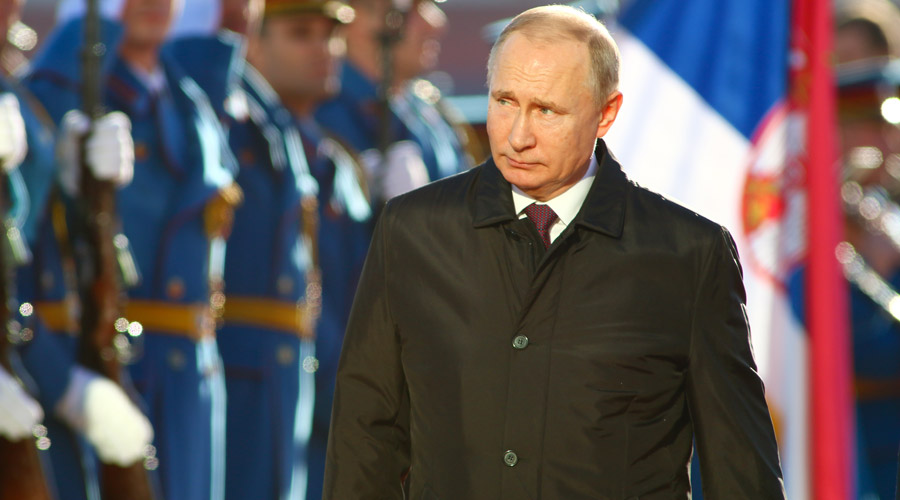It is not every day that the world witnesses the planning of an invasion on television. On Monday, the Russian president, Vladimir Putin, ordered his troops to enter parts of eastern Ukraine controlled by Kremlin-backed rebels, effectively launching what most nations will view as an invasion of a sovereign country. That followed a televised meeting of Russia’s national security council where Mr Putin asked his top officials to share their views on what he ought to do, after insisting that the West had refused to address his concerns. Russia has laid out what it claims is a legitimate reason for sending its troops into eastern Ukraine. Moscow claims that the government in Kiev has perpetrated “genocide” against the Russian-speaking population of that part of Ukraine even though no evidence has been made public. The rebel-backed ‘governments’ of Donetsk and Luhansk recently asked Russia to recognize them as independent states. Mr Putin did so on Monday after his officials had previously said Moscow had no intention of recognizing the so-called Donetsk People’s Republic and Luhansk People’s Republic. Once it had acknowledged these militia-held territories as sovereign entities, Moscow said it was merely sending “peacekeeping” troops there at the request of the rulers of these regions — not invading them.
Yet, even many of Russia’s close friends will find it difficult to accept Mr Putin’s move as legitimate. No other country recognizes the rebel governments in eastern Ukraine. China and India, close friends of Russia despite their own differences, have longstanding positions against secessionist movements, driven by their own domestic challenges. What China will welcome — and India will not — is a distracted United States of America, which will now be forced to refocus its attention on Europe, as opposed to the Indian Ocean. Meanwhile, Western sanctions against Moscow will hurt the global economy and India’s trade and defence partnership with Russia. Could all of this have been avoided? For the past three months, the US and Russia have engaged in calculated theatre, using information warfare to advance their negotiating positions. The US president, Joe Biden, has repeatedly warned of an imminent invasion of Ukraine, and Washington and London have both deliberately shared intelligence assertions with reporters to suggest that Mr Putin is planning false flag operations to create a pretext to invade. But both sides have treated the escalating crisis with a sense of inevitability — rather than any meaningful concessions to avoid war. The result shows.











